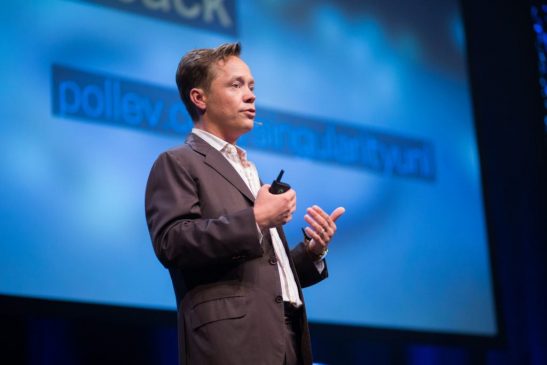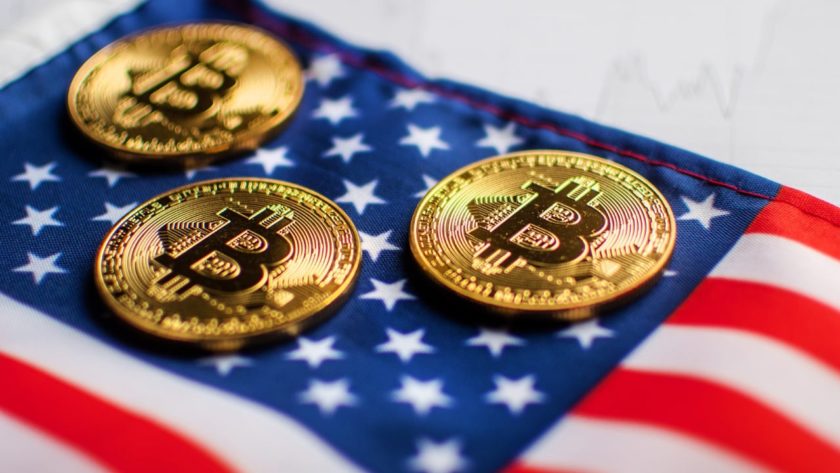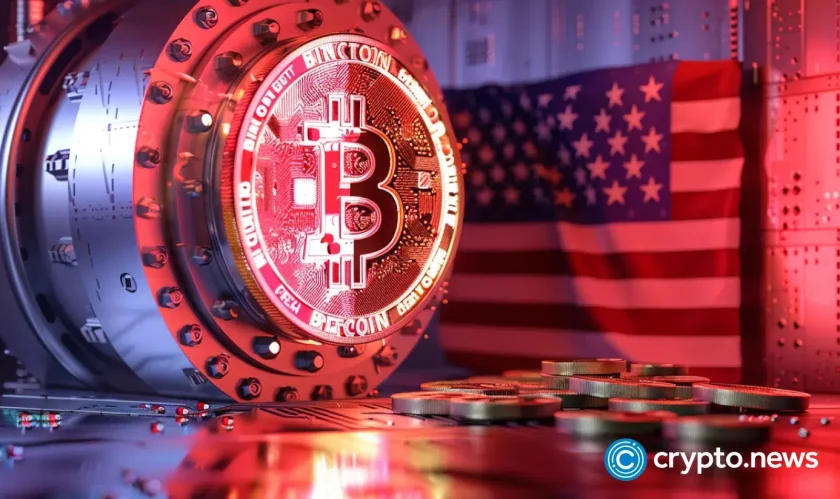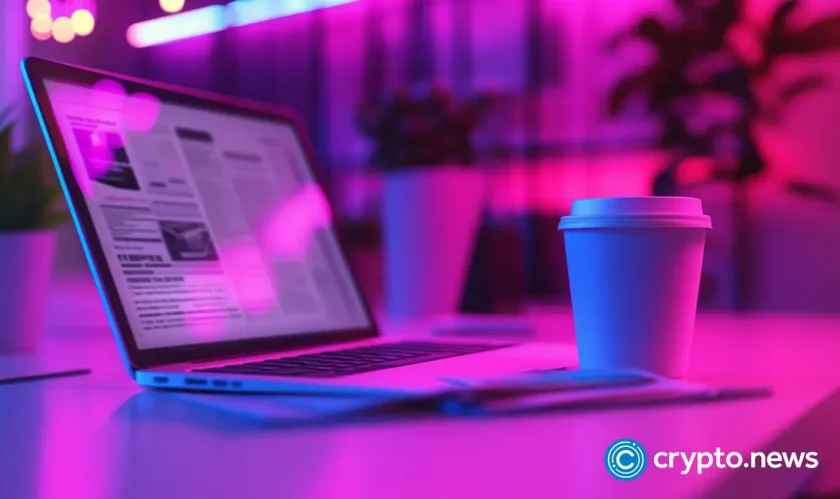Brock Pierce wants to see balance in the world. He effects this vision in more ways than one. For starters, he says he “positively discriminates against people who need a hand up.” But more importantly, he’s currently in the process of discriminating against himself in the settlement of the Mt. Gox affair. You know, the origin of the term “Goxxed“?
Gox Rising: An Equitable Resolution to the Mt. Gox Disaster?
Through a project called Gox Rising, Pierce, who is arguably the only shareholder in Mt. Gox, is seeking to ensure that victims of “our version of Lehman Brothers” are paid a fair share of what has become more than a billion in assets. In 2014, after an aborted attempt the year before to personally buy Mt. Gox using wealth generated from his game asset trading company, Pierce says he was giving a talk at a conference when he found out about the problems at Mt. Gox.
His first move was then to call up Mark Karpeles and negotiate to purchase Karpeles’s 88% stake in the exchange for 1 BTC through an entity called Sunlot. (By all accounts, Pierce was doing Karpeles the favour. The exchange was effectively worth less than $0. Pierce says that ordinarily in deals like this, the acquirer is paid in excess of $10 million.)
Brock Pierce in a 2018 interview with The Crypto Twins. Source: YouTube
FYI: Mark Karpeles Sold Mt. Gox for 1BTC
CCN has reviewed the letter of intent, signed by Mark Karpeles in March 2014, to transfer all Mt. Gox assets to Brock Pierce and Sunlot. At the request of Mr Pierce’s attorney’s, we have opted not to publish this agreement. However, as seen here, Mark Karpeles later tried to rescind the agreement. Brock Pierce never agreed to this. In his own words:
Mark said, ‘Please rescind this so we can tell the bankruptcy trustee our plans and then we will sign another binding agreement.’ I didn’t believe Mark, considering his reputation and history of lying, so I refused — leaving our deal in place.
Later in the month of March, this proposal (embedded below) was submitted to the Japanese government, seeking the rehabilitation that creditors did not want at the time. In the coming weeks, a new proposal will be submitted now that all parties desire it.
Brock Pierce Acquires Mt. Gox in 2014
Mark Karpeles has yet to publicly acknowledge the acquisition. As recently as last year, he assuaged creditors that he “never expected to receive anything from this bankruptcy.”
Pierce says he later acquired the other 12% from Stellar/Ripple co-founder Jed McCaleb for another 1BTC. McCaleb was at the time deeply involved in Ripple and would soon move on to Stellar.
Pierce says the financial risk of taking on Mt. Gox’s assets was dwarfed by the legal implications of being involved in a Bitcoin project at the time.
Back then, everybody thought the government was going to come after all of us. Being high-profile was – oh my god, I spent six months going, ‘Brock, do you want to be part of this space? You’re so high-profile, you’re going to be a prime target for the government. This can end your life.’ Clearly, at the time, you did not want to be high-profile in this space.
From Liquidation to Civil Rehabilitation
Using a legal process called a Civil Rehabilitation Plan, Pierce wants “creditors” – people who had deposits on Mt. Gox that were lost at the time of its demise – to be paid in an equitable way.
In an exclusive interview with CCN, Pierce said he “want[s] what’s best for the industry.” He later says he is “well-positioned and wrongfully entitled” to the assets of Mt. Gox.
The more than 200,000 BTC that Mt. Gox still holds have appreciated in value significantly since the time of its collapse. (Over 600,000 bitcoins have never been recovered.) Between Bitcoin and Bitcoin Cash alone, we’re talking about $700 million. Additionally, around $530 million was previously liquidated and is still held by Mt. Gox, for a total of around $1.2 billion in assets.
The only person who would have a reason to be against me is Mark Karpeles. I was just with him a few days ago. Mark seems to be on the same page as I am.
The Bitcoin Gamble of the Century
After acquiring 100% of Mt. Gox’s remaining assets (and problems), Pierce says “lawyers in Japan freaked out and threw it into bankruptcy.” At this point, Pierce and his people have to engage in a legal fight with the Japanese authorities to prevent liquidation. They pushed instead for something called a “rehabilitation.” The difference is that the company gets a chance to settle its debts and continue business.
Until last year, creditor attorneys continued pushing for a liquidation. Once they realized that the assets had significantly appreciated, they changed their mind. Pierce says the reason for this is that the bankruptcy trustee had marked down the value of the Bitcoin lost at $425 each. This means that most creditors could ever receive was $425 per Bitcoin. The pressure to stop the liquidation and go for a rehabilitation started during the bull run of 2017 when Bitcoin eventually reached a price of almost $20,000.
A Lengthy Process
Mt. Gox was the first major cryptocurrency case the Japanese government had ever dealt with. There was an extreme delay as they educated themselves on the subject in order to decide how best to proceed. Eventually, charges were brought against CEO Mark Karpeles. Most recently, it looks like he could spend up to 10 years in prison.
During this time, Brock Pierce launched and worked on a number of projects you’ve heard of – Blockchain Capital, Tether, Block.one (EOS).
I now arguably am entitled to about $700 million in equity from all the leftover gains. Clearly, at this point, I start paying attention.
Pierce says most of the Mt. Gox creditors don’t realize that Mark Karpeles isn’t entitled to anything. They organized for a civil rehabilitation on the idea that Karpeles would end up getting over $500 million from the Mt. Gox estate.
Mt. Gox to Relaunch Following Asset Distribution
Fortunately for them and for Pierce, this is what Pierce wants as well. He has no interest in the past gains of Mt. Gox. He wants a happy ending to the Mt. Gox story, and ultimately a new chapter.
You can view his forfeiture of his legal stake in Mt. Gox as an investment, because Brock Pierce is going to relaunch Mt. Gox.
You read that right.
Not only that, Pierce says that the more than 20,000 Mt. Gox creditors will be offered a stake in the future of the company. He plans to build a competitive, modern exchange that actively pursues non-custodial trading models.
While not a completely decentralized affair, he feels that tools have come about in the past five years to enable safer trading, such as multi-signature Bitcoin wallets. In short, what happened at the old Mt. Gox can never happen again.
Now That Everyone’s On The Same Page, Mt. Gox Will Live Again
Pierce says Mt. Gox is “like a phoenix rising out of the ashes” and that he is confident it will live down its reputation as Bitcoin’s biggest failure.
We have the rise, the fall, and it’s been in liquidation and bankruptcy in Japan for over five years. But the story is not over. The last chapter of this book is unwritten. We have the power to write that story. What kind of ending do we want for that story? For what is our Bear Stearns, for what is our Lehman Brothers, for what is our Enron? Are we different than the traditional financial system?
Now that lawyers for the Mt. Gox creditors’ class are pushing for the Civil Rehabilitation as well as the shareholder himself, it’s in the Japanese courts’ hands. Hundreds of creditors long ago sold their claims against the Mt. Gox estate for pennies on the dollar. Pierce says there isn’t much that can be done for them.
Process Potentially Far From Conclusion
It could be another five to ten years before the legalities are settled and the assets are finally redistributed. The Civil Rehabilitation plan is to be structured as simply as possible – all remaining Bitcoin, Bitcoin Cash, and Bitcoin SV is to be distributed to creditors proportional to what they have lost.
Once that’s done and over with, Pierce fully intends to relaunch Mt. Gox. His confidence in this regard is almost nervewracking. It brings to mind the grandstanding of Saddam Hussein shortly before the 2003 invasion of Iraq.
Nevertheless, it’s hard to counsel a man as successful as this. One aspect of the deal that does make sense is giving thousands of Bitcoin early adopters a stake in its success. Done properly, the exchange could easily compete in the sea of exchanges. However, to call it anything but “risky” would be dishonest.
Rescinded _ Unsigned – Broc… by on Scribd
Sunlot Holdings Proposed.pdf by on Scribd





